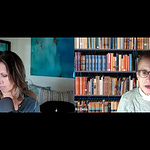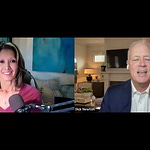The American Psychological Association was founded in 1892, partly as academic disciplines, such as psychology began to emerge, and culture embraced scientific methods to address social problems, as part of the progressive movement in American politics. This gave rise to the modern day psychotherapeutic industry, which accelerated after WWII.
Prior to this ascendance, society dealt with mental health issues in various ways, including guidance from pastors and religious leaders. Given the rise of anti-depressant usage around the world to heal mental health, it would be refreshing if people were to seek their pastors first before popping a Zoloft. I would argue that seeing a pastor may even be more useful than seeing a psychotherapist. Despite the rise in behavioral health services, such as psychiatric care, counseling and/or therapy, mental illness continues to rise.
While I didn’t expect my interview with Joe Suh, founder and CEO of Pastors.ai, to focus on mental health, he brought up an interesting point: Millennials and Gen Z are turning to chatbots for therapy. I looked that up, and indeed, there are some reports out there suggesting this. Now tools, such as Pastors.ai, which are trained on sermons, are becoming equipped to provide that therapeutic counseling pastors aren’t always available to provide. Personally, this is a much better path than going to a secular therapist trained on so-called evidence-based therapies. The psychotherapeutic market is one of the biggest scams. But I digress.
In my conversation with Joe, we talk about a number of topics, not the least of which is the difference between human nature and tech nature. As a technologist trying to perfect the humanness of AI, Joe points out some of AI’s deficits and man’s inherent desire that AI will never care for.
1:00 - Joe’s spiritual dryness that led him to build Pastors.ai.
5:00 - Can Pastors.ai answer questions like a pastor, based on learning from the pastor’s sermons?
6:50 - What AI is doing when it’s hallucinating.
7:41 - The multiple AI models being used and the declining costs for AI tech.
9:00 - The economic model with ChatGPT and the declining prices by a factor of 100x in the last two years.
9:45 - Creating a chatbot for every church.
11:10 - Software was a tool for creators, now it’s creating the content.
11:30 - Who’s using Pastors.ai and what features are churches willing to pay for?
13:15 - How to rise above the competition?
15:31 - Pastors.ai chatbot is like going into a virtual confession booth.
16:00 - Pastor chatbots are like therapists.
17:20 - Best practices and lessons learned from ChatGPT (by giving away search for free).
19:30 - Within the church, what jobs are being disrupted? How AI is changing roles inside the church and empowering the pastor.
22:00 - Will Pastors.ai enable more people to become pastors?
24:00 - Pastors.ai is a tool to help pastors get more mileage out of each sermon.
27:40 - Should AI be regulated and if so, how?
29:00 - Millennials are using ChatGPT as therapists. Pastors retaking their role as therapists.
30:50 - What differentiates humans from robots? The desire to be relational and have community.
34:30 - Surviving the toxic social media decade. AI will have a different impact than social media on relationships and human mental fitness.
36:20 - Will AI become an infinitely patient pastor that can help people with their mental health?
36:12 - Taking solace in Romans 8:28. The toxic social media decade drove loneliness, but the silver lining is a Christian revival. And in Romans 5 - all suffering leads to endurance, endurance - character, character - hope. If we can survive the toxic social media decade, one can develop character and hope.
39:00 - What drove the growth of Menlo Church in Silicon Valley?
41:53 - Joe’s Christian journey and his Jesus time.










